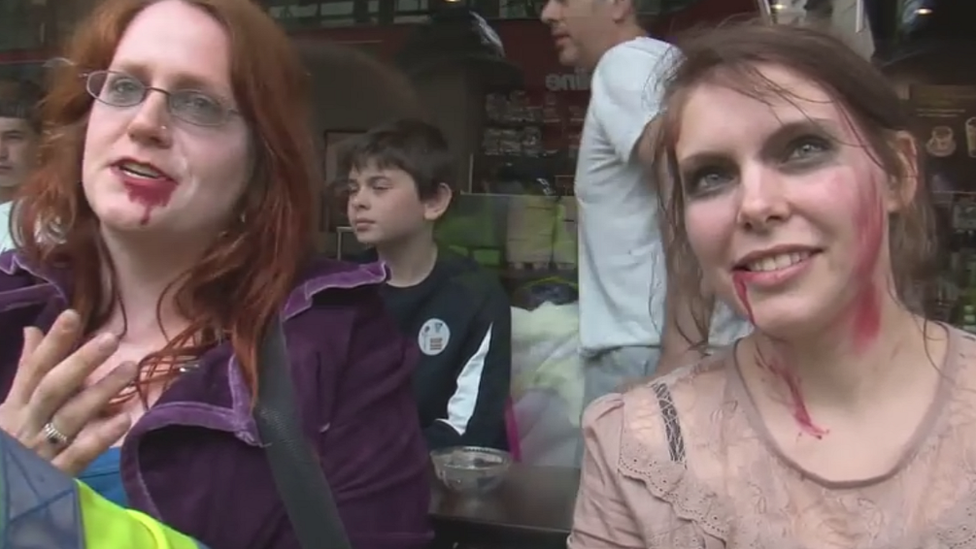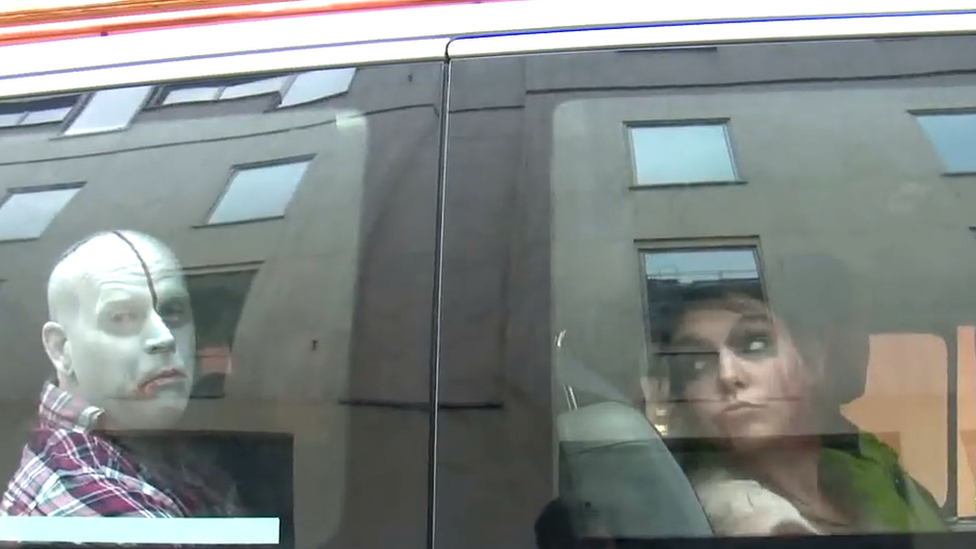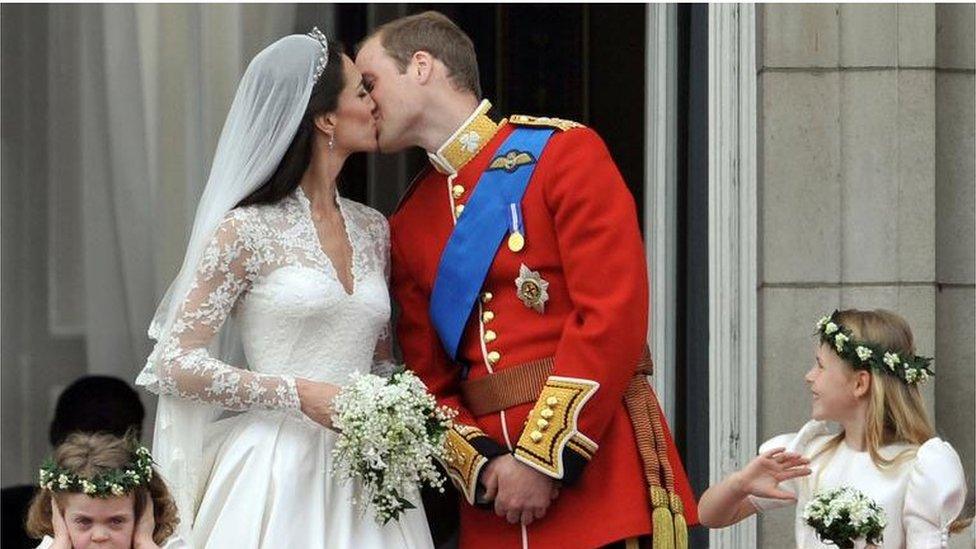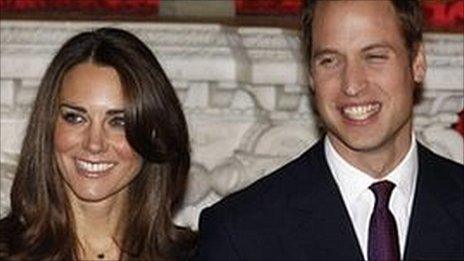Royal wedding 'zombies' lose human rights case
- Published

Hannah Eiseman-Reynard, left, was deemed a threat on the wedding day
Protesters have lost a legal fight against pre-emptive arrests made when some of them dressed as zombies in London during 2011's royal wedding.
The nine demonstrators were detained until after the Duke and Duchess of Cambridge kissed on the balcony at Buckingham Palace.
After eight years of legal hearings, they took their case to the European Court of Human Rights.
There, they were told there had been no breach of their right to liberty.
That court's ruling means police can preventatively detain people even if they have no specific intelligence linking the individual to crime.
The nine people who fought the case to the Strasbourg court were among 20 who were arrested, detained or searched before Prince William's wedding to Catherine Middleton.
Among them was a group taking part in a tongue-in-cheek "zombie wedding" in Soho. The event was two miles from the Westminster Abbey ceremony - and aimed to draw attention to cuts, including to public services, that would hit members of the LGBT community.

Taken away: Detainees said police struggled to explain why they were being held
Organisers encouraged people to dress up for a "fun, theatrical" event that would make a serious point - but police said that one leaflet suggested that "maggot confetti" would be thrown.
Hannah Eiseman-Renyard, lead claimant in the case, said she had only joined the event to help film and report on it and she was astonished when officers arrested her in a Starbucks outlet, external.
She has never been involved in or accused of criminality and was freed without charge on the same day.
There was no evidence that anyone had any maggots - and Ms Eiseman-Renyard said the reference on a leaflet had obviously been written as a joke.
"I went out to report on a flash mob with lip stain dripping down my chin but ended up with handcuff marks on my wrists," she said.
"This is not the outcome we hoped for after eight years of a really long fight. In 2011 the arrests were both unjust and unlawful. Today they remain unjust."

Royal kiss: All the group say they were detained until the happy couple had kissed
Another claimant in the case, Brian Hicks, said he was searched for dangerous items while heading to the "Not the Royal Wedding" protest in Westminster. He was carrying a packet of biscuits, two phones and a comb.
Taken to a police station, he was released without charge after the main royal events had finished.
The European Court said it would not consider the lawfulness of the detentions because British judges had already looked at the balance between police duties to maintain the peace and the rights of those held.
The judgement was significantly influenced by a decision in an unrelated football hooligan case from Denmark, which concluded that police could detain people - and therefore interfere with their right to liberty - if they believed it would prevent someone getting involved in later disorder.
But Ms Eiseman-Renyard said: "This judgement now means that the police don't need a criminal reason to arrest someone and get them out of the way. The outcome of this case has very worrying implications for civil liberties."
- Published1 May 2011

- Published29 April 2011

- Published29 April 2011